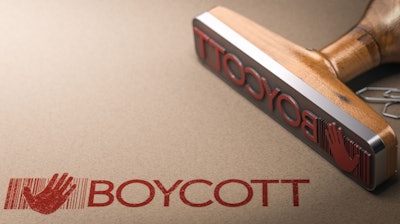
When a major restaurant or grocery chain makes a statement or decision that is offensive, it can be tempting to boycott that company or even take to the internet to encourage others to also stop doing business with that company.
But Brandi Buzzard, a Kansas cattle rancher and social media influencer, discourages that sort of reaction. Buzzard took part in a panel discussion on how animal agriculture advocates can be more effective during the Animal Agriculture Alliance Stakeholders Summit, held May 11-12 in Kansas City.
Buzzard admitted that in the past, she had boycotted a company for its advertising campaign that said inflammatory and inaccurate things against farmers and ranchers. She also acknowledged that she went online to encourage others to also boycott that company. However, she said she will not do either of those again, and she explained why.

Brandi Buzzard | Courtesy Animal Agriculture Alliance
“I am not a proponent of that now. The reason being, because … collectively in agriculture if we boycott every company that makes a decision or says something that we disagree with, you all aren’t going have anywhere to shop or eat,” Buzzard said.
She also said it sends the wrong message to those companies and productive outcomes do not happen.
“If we boycott them, and we sick the dogs on them, and tear them down through this whole degrading campaign around them, that gives them zero incentive the next time they’re evaluating supply chain decisions or they’re thinking about a marketing campaign,” Buzzard said. “If we just bashed the crap out of them, so then why would want to bring us to the table to ask our opinion the next time?”
Buzzard said there are other ways to create meaningful conversations and engage with companies that may have misconceptions about food animal production. For instance, Buzzard suggests not going on the defensive, but instead you should, “be empathetic and understand that not everybody comes from an agricultural background.”
















